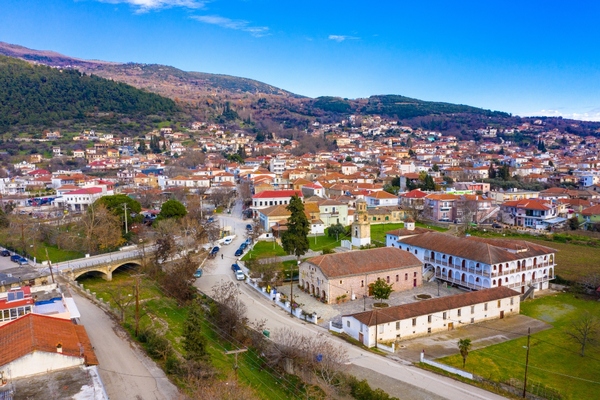Greece enters second phase of smart cities programme
More than 300 Greek municipalities are invited to submit proposals for the programme which seeks to align digital transformation projects with local priorities.
A further 315 Greek municipalities will have the opportunity to participate in the second phase of the nation’s smart cities programme from 1 July this year.
The Minister of State and Digital Government, Kyriakos Pierrakakis from Chania, announced that municipalities with a population of less than 100,000 inhabitants will be able to submit proposals for their digital transformation.
In a separate announcement, Pierrakakis reported on progress of the digital training of civil servants which is seen as a catalyst for the modernisation of public administration.
Digital transformation
The purpose of Greece’s smart cities programme is to upgrade the daily lives of citizens and local communities, by selecting those digital projects that best meet the priorities of each municipality. The ministry has published a list of projects structured in seven categories:
- sustainable movement
- energy saving
- reduction of energy footprint of municipal buildings
- improving citizen and business service
- improving the quality of life
- strengthening local democracy, consultation and transparency
- protection against cyberattacks and enhancement of digital infrastructures.
Actions for the 315 municipalities are funded by €230m from the European Regional Recovery Fund (ERDF). Amounts available to the municipalities range from €210,000 (for very small municipalities) to €2,770m (for municipalities with a population of slightly less than 100,000 inhabitants. Each municipality knows in advance the amount of funding to select the appropriate actions.
“We need to invest in public executives so that they acquire the necessary skills and can use digital tools”
The programme is already in progress for the 16 municipalities with more than 100,000 inhabitants plus the regional unit of Trikala due to the important digital infrastructure that they have already developed.
Muncipality submission plans will be done digitally through the Integrated Information System of the NSRF (OPS NSRF) and the deadline is 31 October 2022.
A total of 3,500 public administration executives have been trained. The goal of the government is to increase the number of trainees by 50 per cent by 2023 and to provide all learners with the opportunity to participate in Microsoft’s assessment and certification processes.
“We need to invest in public executives so that they acquire the necessary skills and can use digital tools,” said Pierrakakis. “From the Recovery Fund there are programmes that will completely upgrade the way the state operates internally as for the first time we will have as a state a single ERP system (business planning system) like the ones that the big companies have.
“We see certified knowledge enrichment programmes such as those provided by Microsoft covering a range of targeted skills.”




Leave A Comment